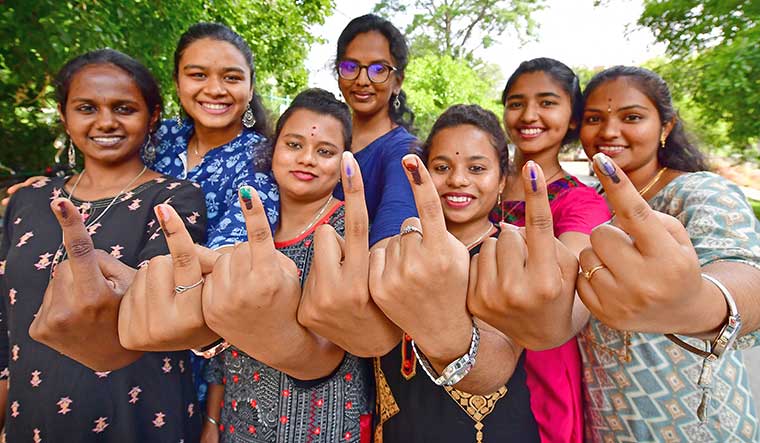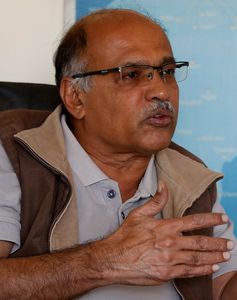THE EMPHATIC VICTORY of the Congress in the Karnataka election in May has broken several myths.
Myth 1. Electronic voting machines are rigged
Opposition parties blame EVMs when they lose elections. Even the BJP did so in 2009 when the Congress won elections in Maharashtra, Haryana and Arunachal Pradesh. Although allegations of EVM rigging had not a shred of evidence, many people believed them. But the Congress victory in Karnataka proves that EVMs are unfairly blamed, and that Indian elections are fair and transparent.
All the same, it behoves the Election Commission to order credible third-party audits periodically to certify the robustness and integrity of EVMs. The integrity of election commissioners, too, has been under a cloud. There is a perception that they are beholden to the ruling party and have often capitulated, and have not acted with independence in election disputes.
But, the commission has conducted flawless elections in states and to the Lok Sabha. Its task is herculean, considering the sheer number of voters (about one billion), the country’s vast and varied terrain, and the administrative complexity of deploying lakhs of polling and counting officials and security personnel.
While international agencies paint India as an electoral autocracy and rank it poorly on the freedom index, it is heartening that India conducts its elections fairly and efficiently, and counts the votes and announces the results quickly―even in the communally polarised Karnataka, which went on to choose an atheist as chief minister. This yet again validates the vibrancy of our democracy.
Myth 2. Modi magic works in any BJP state
The confidence that Narendra Modi’s charisma will dispel voters’ anger over inept and corrupt governance in any BJP state has been busted. Intoxicated with power, BJP leaders in Karnataka gave a free rein to corruption. They went on a statue erecting spree―of Kempegowda, Basavanna, Kanakadasa, Valmiki―pandering to the dominant Vokkaliga and Lingayat communities. They forgot agrarian distress, jobless youth and Bengaluru’s crumbling infrastructure.
To their shock, all dominant communities rejected them at the polling booth. Modi came, Modi saw. He rode the chariot, beat the drum, blew the conch, even invoked Hanuman, but could not conquer.
Modi is repeating the past blunders of the Congress and even surpassing it. He has concentrated all powers of the party and the government in himself, as Indira Gandhi had done. He would do well to study his favourite bugbear Jawaharlal Nehru’s sagacity in politics, and his openness to debate and dissent.
For the Congress, the appointment of Mallikarjun Kharge as party president turned the tide. Kharge acted as a mature, accommodative politician, not given to impulsiveness. The Gandhis would do well to give him a free hand and not impose their will on him. He knows how to listen to leaders in the five states going to the polls this year and to help them set the theme for the elections.
Rahul Gandhi got it right when he said Karnataka elections were not about Modi. Prudently, Rahul did not make himself the centre of the election battle.
Myth 3. Money can win elections
Emeritus professor James Manor of London University has studied Karnataka for four decades, from the time of Devaraj Urs, who was chief minister twice. Manor said: “In 2019 the BJP had 18 times more money to spend than all other parties combined, and the disparity has increased since then. And yet in Karnataka this time―as in 70 per cent of state elections since 1980―the party with more money has lost.”
Money helps in strengthening an organisation and amplifying one’s good work through clever use of the media. But money cannot buy hearts―certainly not when governance collapses, when institutions are compromised, and when there is joblessness, lawlessness, nepotism and venal politics.
Myth 4. Hard-selling of hindutva and demonisation of Islam will lead to electoral success
Karnataka voters have burst this myth. They followed Basavanna and poet Kuvempu, who celebrated humanism. The voters ignored the BJP’s calls to vote on religious lines. But the party’s rivals will do well to remember that vote-bank politics and pandering to fanatics among the minorities will invite a Hindu backlash.
The rise of Islamic fundamentalism has helped the RSS enlist more Hindus for its fight for a Hindu state. The propaganda that Hindus are under threat has had its resonance, even in the northeast where many Hindus eat beef. But we must not forget that Hindus dislike straitjacketing, that Hinduism is pluralistic and has absorbed alien thoughts and cultures, spawned other faiths from its womb, and is ever changing, ever renewing, ever nourishing itself and yet ever remaining the same. Attempts to homogenise it or make it rabid have failed. Nothing fails like excess.
Infusing people with a sense of pride in Hinduism, its great civilisational ethos, art and cultural heritage and the grandeur of its luminous spiritual quest to discover the mysteries of the universe, is necessary but by following oceanic minds like Swami Vivekananda. The fantasy of making Bharat great by injecting fanaticism will boomerang. The BJP can win if it practises what it preaches―Vasudhaiva Kutumbakam, meaning the world is one family―and by mixing a bit of Nehru, a bit of Vajpayee and a large dose of
Vivekananda.
The author is a soldier, farmer and entrepreneur.



